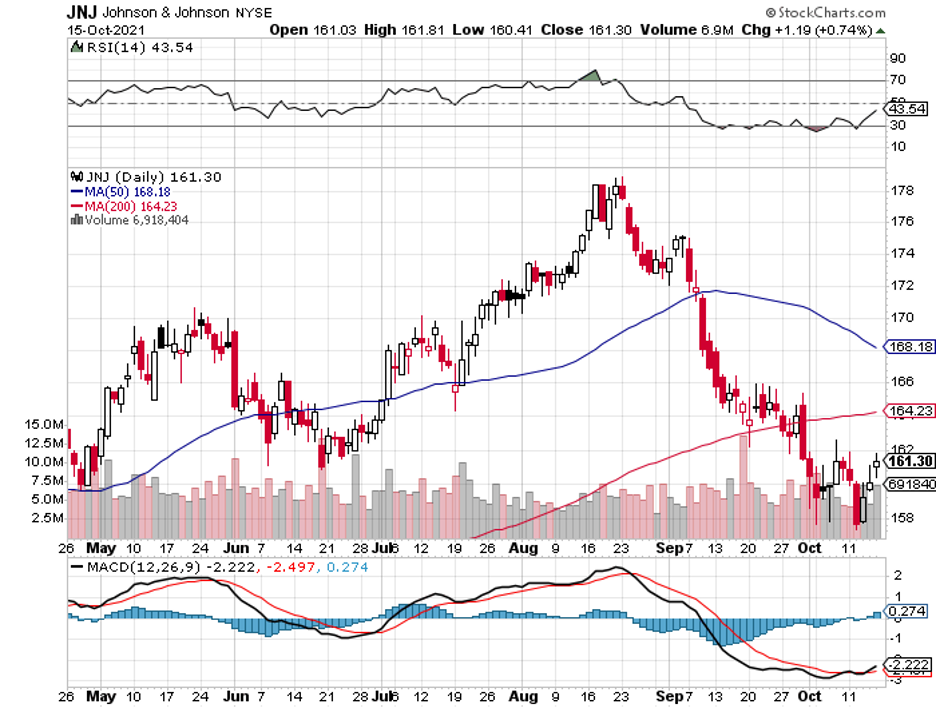A Dividend Aristocrat That Delivers Like Clockwork
There have been two narratives as far as COVID-19 vaccine developers go. One story centers on companies with fortunes essentially built and exploding thanks to their COVID-19 vaccines, like Moderna (MRNA), Novavax (NVAX), and BioNTech (BNTX).
The second story involves larger biopharmaceutical companies, such as Johnson & Johnson (JNJ) and BioNTech’s partner, Pfizer (PFE), which barely felt their shares move in the past 18 months.
While it’s easy to understand the excitement over the achievements of the likes of Moderna, is it reasonable for Pfizer and JNJ investors to feel bad over the lack of movement in their shares?
Not at all, especially in the case of JNJ.
After all, these huge companies have decided to sell their vaccines on a not-for-profit basis until the major wave of the pandemic ends—a move that can be seen as a sound strategy for JNJ to rebuild some goodwill especially following the recent scandals involving the company.
Nevertheless, JNJ might still get a boost (pun intended) from its COVID-19 vaccine booster shots.
Just last week, a prominent advisory committee to the US FDA unanimously voted to recommend the booster shots, which likely means that the 15 million people who got jabbed with JNJ’s candidate will get a second shot as well.
If the FDA agrees with this recommendation, then the boosters could be available within the month. This comes after the agency also approved booster shots from Pfizer-BioNTech and Moderna.
Last month, the US government decided to provide Pfizer booster shots to the older population and high-risk groups, with Moderna following suit almost immediately.
So far, there have been 8 million people who have already received their Pfizer booster doses, while 1.6 million got the third dose for Moderna.
This is another lucrative market for vaccine makers, considering that to date, there are over 104 million people vaccinated with Pfizer, roughly 69 million with Moderna, and approximately 15 million with JNJ.
Amid the talks about the boosters, JNJ stands firm that its vaccine’s potency increases over time and doesn’t wane, unlike Pfizer’s candidate. This means there’s no urgency for a booster shot when it comes to JNJ’s candidate.
Nevertheless, considering that JNJ isn’t exactly attempting to earn from its COVID-19 vaccine aggressively, there’s no point in investors worrying about this issue too much.
The fundamental aspects that will impact the stock price can be found elsewhere.
One of the more exciting projects of JNJ lately is its move to become more active in the gene-editing field.
Following the buzz from the multi-billion dollar acquisitions of companies like Novartis (NVS) and Roche (RHHBY) several years ago, it looks like JNJ might be the next big name to enter the fray.
Since 2018, JNJ has been working closely with a small-cap gene-therapy company called MeiraGTx Holdings (MGTX).
While highly secretive of the details, MeiraGTX, which has a market capitalization of just below $600 million, has been developing a gene-regulation technology—an innovation that could revolutionize gene therapy.
For context, this kind of innovation was applied to Novartis’ Zolgensma, a one-time treatment for spinal muscular atrophy worth a whopping $2.1 million—the most expensive medication in the world.
In terms of MeiraGTX’s work with JNJ, the two companies are focusing on creating therapies for various eye diseases. Looking at their timeline, the first candidate should be ready by 2023.
While there remain questions about its COVID-19 vaccine candidate, their earnings are expected to reach roughly $2.5 billion or merely 2.65% of JNJ’s total revenue. This would barely make a dent in the overall performance of the company.
What comes clear in the performance reports from the company is that its core business remains the primary moneymakers.
In the second quarter of 2021, JNJ recorded $23.3 billion in sales, reporting a notable 27.1% from the $18.3 billion revenue it generated from the same quarter in 2020.
Its gross profit also climbed from $11.7 billion to $15.7 billion, showing a 33.8% improvement. As for its EPS, it skyrocketed by 72.8% year-over-year from $1.36 to $2.35.
Meanwhile, JNJ’s guidance for 2021 has been updated to reflect its expected 13.% to 14.% year-over-year increase between the range of $93.8 billion and $94.6 billion.
Its pipeline and current portfolio also all but guarantee that JNJ will deliver mid to high single-digit earnings in the years to come.
Another indicator of the stock’s quality is its dividend record, with JNJ priding itself on a 59-year streak—making it an undisputed dividend aristocrat.
Overall, I see JNJ as an impressive $433 billion behemoth in the biopharmaceutical sector. The company has been consistent in delivering remarkable top and bottom lines every quarter.

